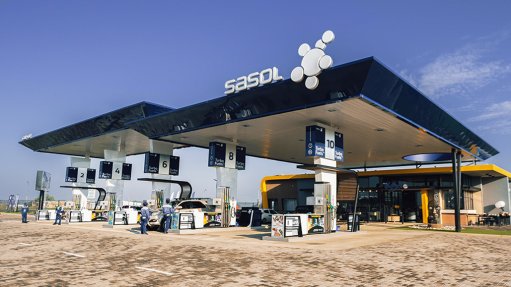Oil change - What happens to used lubricating oil in South Africa?
This article has been supplied as a media statement and is not written by Creamer Media. It may be available only for a limited time on this website.
Global warming and environmental pollution has intensified our need to recycle our limited natural resources and to extend the lifespan of the manufactured products we use. The lubricants industry is no exception and currently in South Africa most of the used oil collected is recycled into heating fuel. However, internationally especially in the European Union, there is a significant trend in the larger refineries towards re-refining used oil back to base oil.
The European Union’s Waste Directive strongly favours re-refining over burning for energy recovery, and as a result, it is thought that re-refined base oils could meet nearly a quarter of Europe’s base oil demand by 2020.
Used oil processing in South Africa
Bubele Nyiba, the CEO of the ROSE Foundation (Recycling Oil Saves The Environment) explains that in South Africa less than 20% of used oil is re-refined to base oil with most being used as heating fuel.
“The international trend of refining the majority of used oil back to base oil is exciting, but premature for a developing country like South Africa because of the prohibitive cost of the technology and developing the necessary processes.”
Re-Refining vs Recycling
Nyiba explains that The term “recycling” is very different from “re-refining.”
“The term “recycling used oil” generally means to take used motor oil and use it for a different purpose, most commonly to be burnt as fuel. In the lube oil industry, “recycling oil” or “reconditioning oil” is most commonly referring to using commercial filtration systems to remove insoluble impurities. This method, however, does not remove any of the soluble contaminants. This resulting oil is generally used for fuel and is only good for one-time use. Reconditioned oil is not suitable for use in vehicles.”
“Re-refining of used oil is a process that has been developed over many years,” advises Nyiba. “It removes all impurities, both soluble and insoluble, and returns the oil to a quality suitable for use in vehicles. Re-refined oil has quality that is equal to or better than some virgin base oils and motor oils can be re-refined many times.”
The used oil refining process explained
Pre-treatment of used oil involves removing any water within the oil, known as dewatering. One way of doing this is by placing it in large settling tanks, which separates the oil and water.
Water is found in used oil as free water or bound water, for example in emulsions. The term dewatering is usually taken to mean the removal of free water. Where water has been emulsified with oil, the emulsion has to be "broken" with a demulsifier before the water can be separated from the oil.
Next the oil is filtered and demineralised to remove any solids, inorganic material and certain additives present in the oil, producing a cleaner burner fuel or feed oil, which can be further refined.
The demineralised oil is filtered to remove suspended fine particles (to solid waste) and run off to storage as a clean burner fuel. It can be further diluted or "cut" with a lighter petroleum product (called cutter stock) to produce light viscosity lubricants suitable for general lubricant applications, low viscosity lubricants for automotive and industrial applications, and high viscosity lubricants for heavy-duty applications. The oil that is produced in this step is referred to as re-refined base oil (RRBL).
Next comes propane de-asphalting to remove the heavier bituminous fractions, producing re-refined base oil. This is an important pre-treatment step in the re-refining process producing de-asphalted lube-oil, which becomes a feedstock for the next step in a re-refining facility. The residue (waste) component is mixed with bottoms from the vacuum distillation tower to produce an asphaltic material.
Following de-asphalting comes distillation to produce re-refined base oil suitable for use as a lubricant, hydraulic or transformer oil. This process is very similar to the process undergone by virgin oil.
Distillation (or Fractionation) is the physical separation of components of lubricating oil by boiling range. Depending on the type of distillation, the boiling ranges can produce gases and gasolines at the lower boiling points with heavy lubricating oils being distilled at higher boiling points. Distillation is the core process for a facility capable of producing re-refined base-oils to virgin base-oil quality.
The final step is blending additives into these three grades of oil products to produce final products with the right detergent and anti-friction qualities. Then each product is tested again for quality and purity before being released for sale to the public.
“Very few processors in South Africa have the capacity to re-refine back to base oil – FFS is the exception and has invested in equipment that enables them to produce a very high quality Group 1 SN 150 Base Oil (re-refined oil) that meets and exceeds international standards for this type of product,” says Nyiba.
“Although local demand outstrips supply for burner fuel, this is still an issue in terms of air emissions as heavy and light furnace oils still contain impurities - the used oil industry ultimately needs to move towards re-refining back to cleaner fuels.
“The challenge is to make re-refining a sustainable option for processors,” concludes Nyiba.
Contact the ROSE Foundation for more information about the processing of used oil: (021) 448 7492 www.rosefoundation.org.za
Comments
Announcements
What's On
Subscribe to improve your user experience...
Option 1 (equivalent of R125 a month):
Receive a weekly copy of Creamer Media's Engineering News & Mining Weekly magazine
(print copy for those in South Africa and e-magazine for those outside of South Africa)
Receive daily email newsletters
Access to full search results
Access archive of magazine back copies
Access to Projects in Progress
Access to ONE Research Report of your choice in PDF format
Option 2 (equivalent of R375 a month):
All benefits from Option 1
PLUS
Access to Creamer Media's Research Channel Africa for ALL Research Reports, in PDF format, on various industrial and mining sectors
including Electricity; Water; Energy Transition; Hydrogen; Roads, Rail and Ports; Coal; Gold; Platinum; Battery Metals; etc.
Already a subscriber?
Forgotten your password?
Receive weekly copy of Creamer Media's Engineering News & Mining Weekly magazine (print copy for those in South Africa and e-magazine for those outside of South Africa)
➕
Recieve daily email newsletters
➕
Access to full search results
➕
Access archive of magazine back copies
➕
Access to Projects in Progress
➕
Access to ONE Research Report of your choice in PDF format
RESEARCH CHANNEL AFRICA
R4500 (equivalent of R375 a month)
SUBSCRIBEAll benefits from Option 1
➕
Access to Creamer Media's Research Channel Africa for ALL Research Reports on various industrial and mining sectors, in PDF format, including on:
Electricity
➕
Water
➕
Energy Transition
➕
Hydrogen
➕
Roads, Rail and Ports
➕
Coal
➕
Gold
➕
Platinum
➕
Battery Metals
➕
etc.
Receive all benefits from Option 1 or Option 2 delivered to numerous people at your company
➕
Multiple User names and Passwords for simultaneous log-ins
➕
Intranet integration access to all in your organisation


















